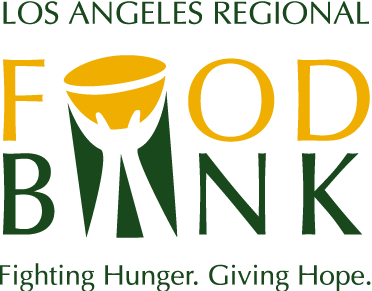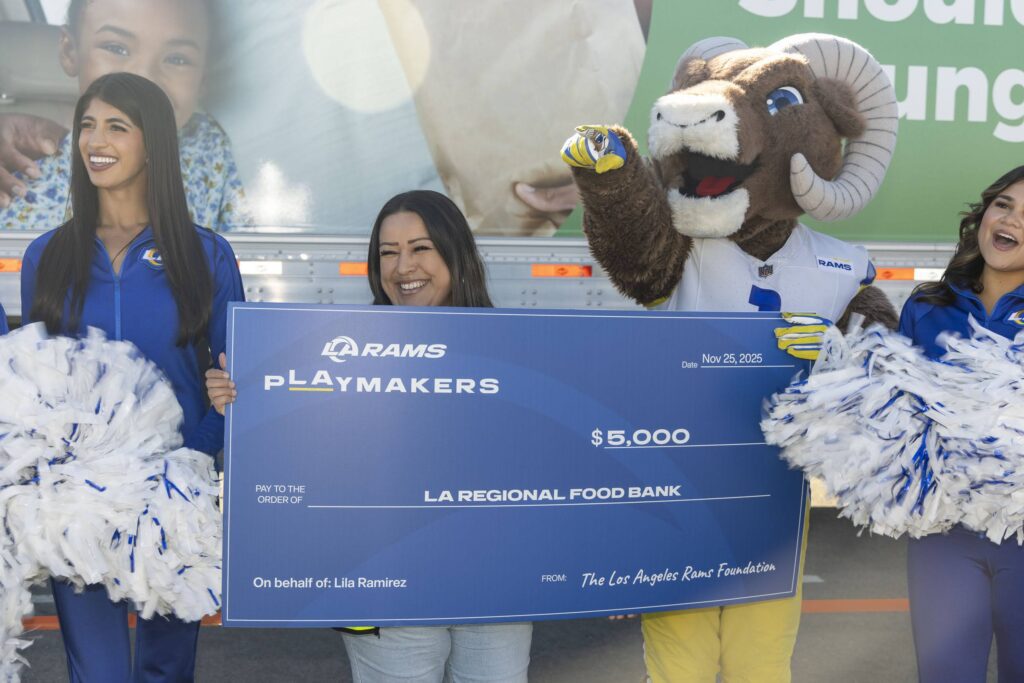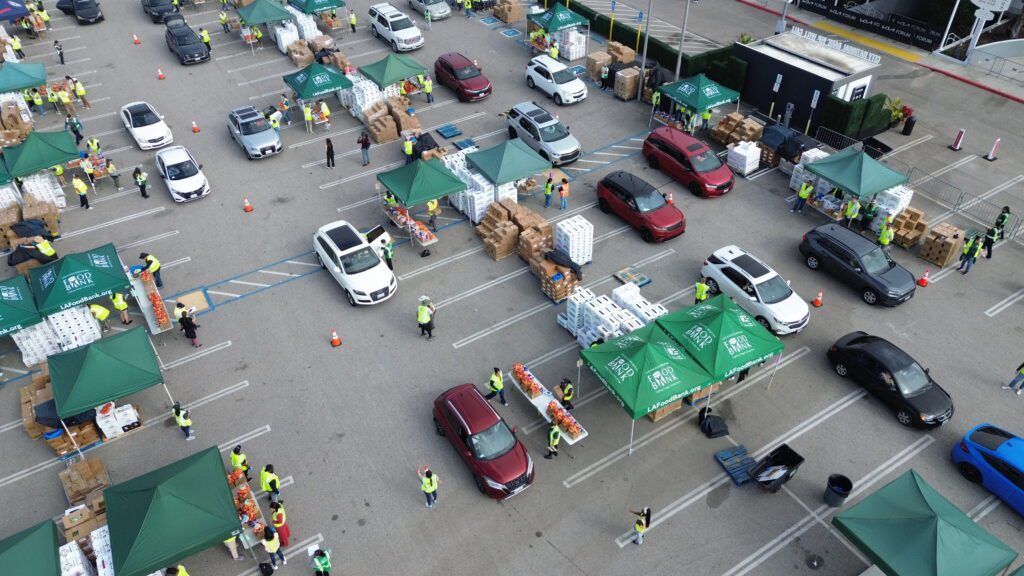A Life Led by Service: LSSSC/San Fernando Valley Director Shares Her Story
A Life Led by Service: LSSSC/San Fernando Valley Director Shares Her Story
Lutheran Social Services of Southern California is one of the Los Angeles Regional Food Bank’s Agency Partners in a network of about 700 organizations. Area director for LSSSC/San Fernando Valley, Jan Maseda, opens up about her 20-year experience in a virtual interview with the Food Bank on Zoom.
Jan discusses the people she’s been able to help, including those experiencing homelessness locally, children of families enrolled in Early Start Programs, and more recently, those who have lost their jobs due to COVID-19 and college students sleeping in their cars and going hungry.
In Helping Others, You Help Yourself
Jan, who officially retired in 2014 and a total of 3 times, stepped in as the Director as LSSSC needed one. It could be a myriad of reasons Jan finds herself back on the frontline: her guiding principles in how she approaches being of service to others include kindness, compassion, trying to walk in the shoes of others, empowering others, embracing people and trying to help.

“It is a very humbling experience to help people, and that’s been my life’s work: helping people. In different avenues, but this avenue seems like God put me here.”
The mission of LSSSC is to serve low income, no income and those experiencing homelessness in the North Hollywood and San Fernando Valley areas of LA County. She feels that LA Regional Food Bank and programs are all acts of service for God.
The Guiding Light: Helping
Jan is back in her Director role because, in her 20 years, there doesn’t seem to be a time where we could go out of business as a food bank – ever, she says. She says she hasn’t seen a decrease in the number of homeless people or those who are food insecure with COVID-19 making it worse, especially in Los Angeles County, where every 1 in 4 people may not know their next meal is coming from.
“There’s just never enough food banks, never enough organizations willing to step up and help people. Never enough volunteers or enough food. We closed three times in March and April for lack of food because the pandemic broke the supply chain. If there’s no food at Ralph’s because people are [panic] buying, there’s no food that trickles down to agencies such as ours also. So that was a big surprise – I don’t think we’ve witnessed something like that like no toilet paper, no hand sanitizers and no canned goods in our stores in my lifetime. It was a surprise for food banks that this could happen in America.”
In Jan’s innate helpful nature, the LSSSC can rely on her as their Director. Many families have never been to a food bank before, and there’s a little bit of a stigma attached to it, she says. “We try to make them feel as comfortable as possible and show them that there is no stigma here and all we want to do is give you food.”
Please note that most of these pictures were taken before the pandemic.
Their operations have shifted to adhere to Public Health Guidelines to ensure everyone’s safety is how LSSSC now distributes their food pantry offerings. Before, people were welcome to come inside and to browse through the items according to their preferences.
“We found that was empowering for people – to be able to just shop like a normal person in our food pantry. We have a huge selection, and we don’t like packing for them because we may not know their cultural background or dietary restrictions or preferences. We like to be able to offer that to them (the choice) – as one of our guiding principles of helping them and empowering them to get what they want and eat what they want and not just feel like they were taking a hand out. And we’re hoping that changes soon where we can live without COVID.”
The pandemic has further changed other aspects of the agency: offering more than food, LSSSC also offers a closet full of clothes and shoes for children, women and men, and blankets for the homeless that now functions outside, they’ve had to let almost all of their volunteers, developmentally delayed adults that normally come in and sort the food, go and have since been able to have them back.
They have also seen an increase in the number of people that seek assistance in their food pantry by about 25-30% – making it very tough for the organization to maintain operations with higher demand and increased resources.
“It’s become much more challenging but we have noticed that the community has really stepped up to the plate also through donations of everything — from food and clothes and they would give their time and energy if they could too. I’m hoping other organizations have experienced the same thing we have.
Apart but Together
Lutheran Social Services of Southern California also shares whatever resources they have through the San Fernando Valley. With the region being so big, there are several food pantries in the area and they serve whatever the demographics are, Jan explains. They used to serve the population in Van Nuys where the organization was located and where there happened to be a lot more homeless people there and they served that area for 15 years, she says. Now the organization is doing more family work as there is a magnet school across from them and a Head Start program on their property so they provide help for a lot of kids and their families.
Through her years and experience, she has developed and cultivated strong relationships throughout the community of agencies like hers.
“If we have an abundance of blankets, or socks or whatever the item may be, we’ll reach out to an organization that may be serving a homeless population and we’ll share with them. It’s nice to have a coalition here – from churches, temples, and everybody trying to serve people who really need the help. It’s nice to have that coalition and to share each other’s bounty.”
A Life Spent Fighting Food Insecurity
In her experience, Jan says that it is still surprising to see the need around food insecurity never go away in her 20 years and it’s only gotten worse, especially with the pandemic and its economic downturn impacting all walks of life. She says that the things most people don’t realize about food insecurity are food-insecure children who are suffering amidst school closures and parents coping with job loss and cut hours and a whole population of college students are food insecure.
“A lot of us live a life, not necessarily in a bubble, but a certain type of life where we don’t experience food insecurity and it’s tough to understand how people in America can be going hungry.”
“I really want to express my gratitude to the Los Angeles Regional Food Bank. We wouldn’t be here without you. I’m sure other agencies say that and we are blessed that we have the support of so many other organizations, churches, our councilmembers and LA City council.”
It is with your help and support, the Food Bank is able to provide critical goods – food and grocery products – to agency partners like Lutheran Social Services of Southern California and the food-insecure children, seniors, families and individuals that rely on them. Join the fight against hunger today.
- Related Story: The Food Bank Fights Hunger with the Congregational Church of Chatsworth
- Related Story: Food Bank Partner Agency Goes From 1 to 6 Distributions Amid the Coronavirus












